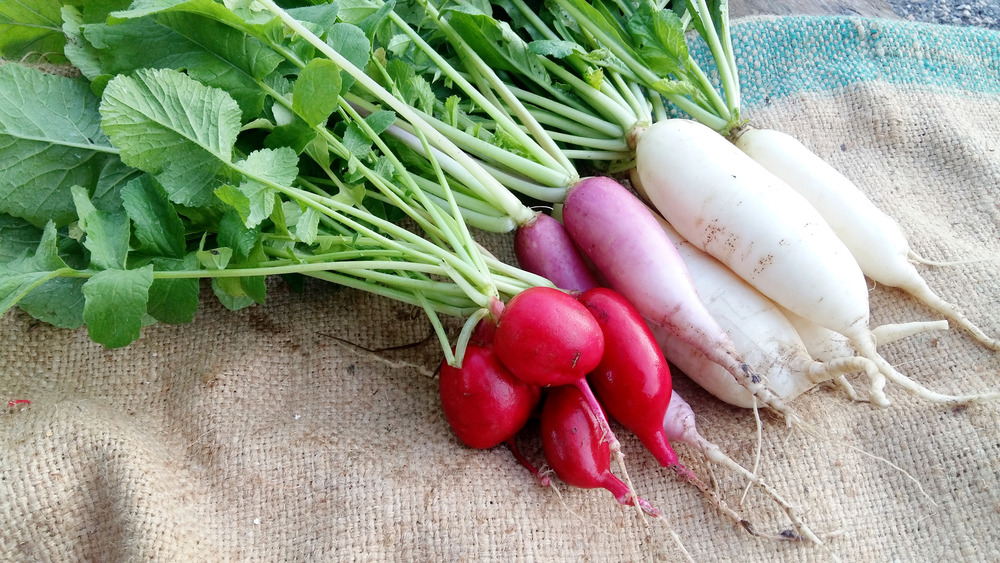Why You Should Eat More Radishes
Besides being the cutest darn things in the produce aisle, radishes offer a range of benefits that we think should earn them a spot in your home kitchen vegetable lineup. The little red variety might be most common in U.S. supermarket chains, but radishes come in a variety of shapes and sizes. Daikon radishes (or Chinese white radishes) are also fairly widely available and somewhat larger than other radish varieties, watermelon radishes have a beautiful green exterior and pink insides, and, perhaps surprisingly, horseradish is also — yes — a radish (via The Spruce Eats).
With their crunchy texture and refreshing flavor, radishes are a no-brainer for slicing into a salad or on top of your favorite hot dish. Some types are a little bit more spicy and peppery, while others tend to be more mild, so it might be a good idea to experiment with different radish varieties and cooking methods to find the ones that appeal most to you. Radishes are great roasted until golden-brown, cooked into a hearty stew, or pickled for an extra-crunchy bite, according to The Kitchn; but a simple and beautiful way to enjoy radishes in their purest form is raw with some softened butter to dip into and a sprinkle of flaky sea salt (via The New York Times).
The amazing health benefits of radishes
Luckily for us, radishes are also — you guessed it — good for you! Healthline reports they're from the Brassica family, which includes broccoli, kale, cauliflower, and cabbage. Radishes contain lots of vitamin C, only a few calories, and small amounts of other vitamins and minerals like potassium, folate, and riboflavin, to name a few. There's also reason to believe radishes have some cancer-fighting properties, containing compounds that help prevent tumor formation and flush out dangerous substances.
Radishes may also be antifungal, because they contain a protein that causes cell death of a common fungus, according to a study published in Molecular Microbiology. Healthline states that this fungus has been known to cause yeast infections and other problems in humans. In another study on rats (published in the Journal of Applied Toxicology), radish extract was found to reduce the toxic effects of a fungus that is found in corn and other animal feeds.
Radishes also pack in a respectable dose of fiber, which helps your body with digestion. One study even showed that radish juice helped prevent the formation of gastric ulcers in rats (via Farmacia). So why not give these little guys a chance? With so many unique varieties and preparation methods, we're sure you'll find the right one for you!

